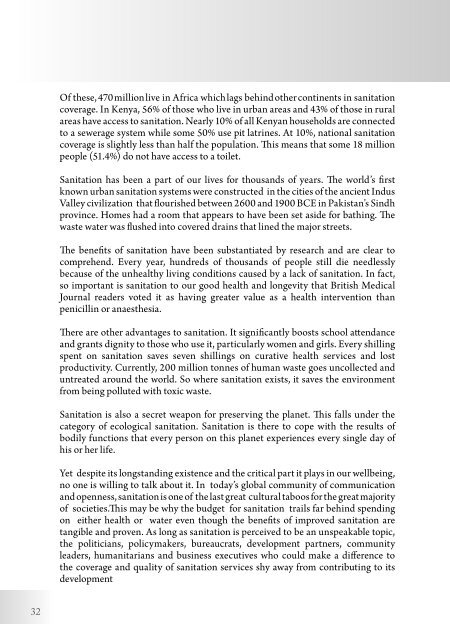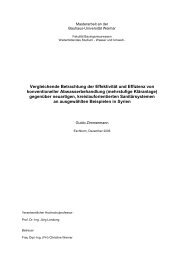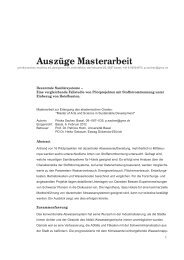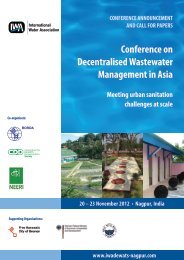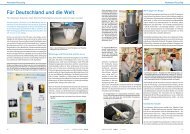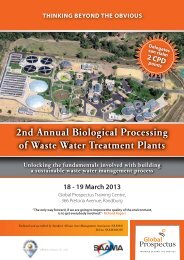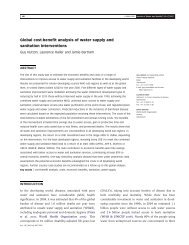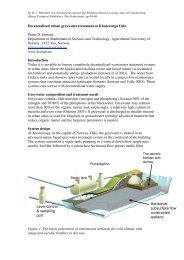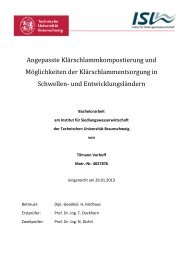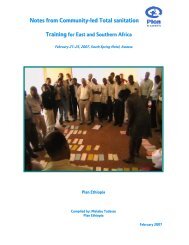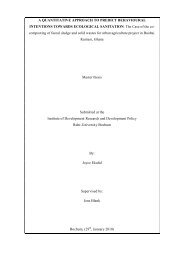Technical Guide to EcoSan Promotion
Technical Guide to EcoSan Promotion
Technical Guide to EcoSan Promotion
You also want an ePaper? Increase the reach of your titles
YUMPU automatically turns print PDFs into web optimized ePapers that Google loves.
Of these, 470 million live in Africa which lags behind other continents in sanitation<br />
coverage. In Kenya, 56% of those who live in urban areas and 43% of those in rural<br />
areas have access <strong>to</strong> sanitation. Nearly 10% of all Kenyan households are connected<br />
<strong>to</strong> a sewerage system while some 50% use pit latrines. At 10%, national sanitation<br />
coverage is slightly less than half the population. This means that some 18 million<br />
people (51.4%) do not have access <strong>to</strong> a <strong>to</strong>ilet.<br />
Sanitation has been a part of our lives for thousands of years. The world’s first<br />
known urban sanitation systems were constructed in the cities of the ancient Indus<br />
Valley civilization that flourished between 2600 and 1900 BCE in Pakistan’s Sindh<br />
province. Homes had a room that appears <strong>to</strong> have been set aside for bathing. The<br />
waste water was flushed in<strong>to</strong> covered drains that lined the major streets.<br />
The benefits of sanitation have been substantiated by research and are clear <strong>to</strong><br />
comprehend. Every year, hundreds of thousands of people still die needlessly<br />
because of the unhealthy living conditions caused by a lack of sanitation. In fact,<br />
so important is sanitation <strong>to</strong> our good health and longevity that British Medical<br />
Journal readers voted it as having greater value as a health intervention than<br />
penicillin or anaesthesia.<br />
There are other advantages <strong>to</strong> sanitation. It significantly boosts school attendance<br />
and grants dignity <strong>to</strong> those who use it, particularly women and girls. Every shilling<br />
spent on sanitation saves seven shillings on curative health services and lost<br />
productivity. Currently, 200 million <strong>to</strong>nnes of human waste goes uncollected and<br />
untreated around the world. So where sanitation exists, it saves the environment<br />
from being polluted with <strong>to</strong>xic waste.<br />
Sanitation is also a secret weapon for preserving the planet. This falls under the<br />
category of ecological sanitation. Sanitation is there <strong>to</strong> cope with the results of<br />
bodily functions that every person on this planet experiences every single day of<br />
his or her life.<br />
Yet despite its longstanding existence and the critical part it plays in our wellbeing,<br />
no one is willing <strong>to</strong> talk about it. In <strong>to</strong>day’s global community of communication<br />
and openness, sanitation is one of the last great cultural taboos for the great majority<br />
of societies.This may be why the budget for sanitation trails far behind spending<br />
on either health or water even though the benefits of improved sanitation are<br />
tangible and proven. As long as sanitation is perceived <strong>to</strong> be an unspeakable <strong>to</strong>pic,<br />
the politicians, policymakers, bureaucrats, development partners, community<br />
leaders, humanitarians and business executives who could make a difference <strong>to</strong><br />
the coverage and quality of sanitation services shy away from contributing <strong>to</strong> its<br />
development<br />
32


